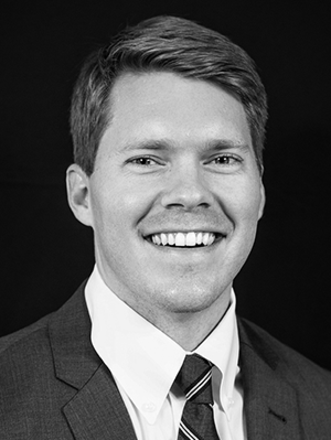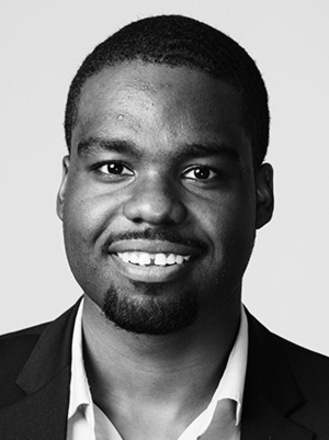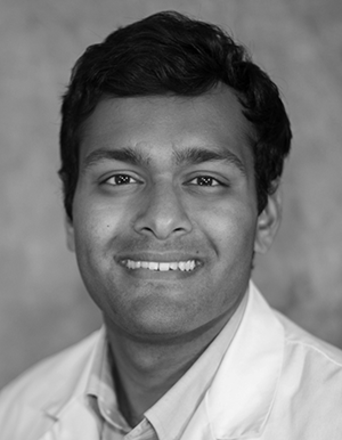The Pisacano Leadership Foundation, the philanthropic arm of the American Board of Family Medicine (ABFM), recently selected its 2017 Pisacano Scholars. These 6 medical students follow in the footsteps of 108 scholar alumni who are practicing physicians and 20 current scholars who are enrolled in medical schools or family medicine residency programs across the country. The Pisacano Leadership Foundation was created in 1990 by the ABFM in tribute to its founder and first executive director, Nicholas J. Pisacano, MD (1924–1990). Each Pisacano Scholar has demonstrated the highest level of leadership, academic achievement, communication skills, community service, and character and integrity.

Victoria Boggiano is a 4th-year medical student at Stanford School of Medicine. Earlier this year she received her Master of Public Health from the University of California –Berkeley. Victoria graduated from Dartmouth College with degrees in Government and Biology.
After graduating from Dartmouth, Victoria spent a year working as a Community HealthCorps Navigator at a federally qualified health center in Maryland through the AmeriCorps program. Upon completing her year of service with AmeriCorps, she received a scholarship that was applied to her medical school tuition.
At Stanford, Victoria received a Traveling Scholars Fellowship that allowed her to travel to Vietnam to conduct a study on healthy behaviors of homeless youth living in Ho Chi Minh City. Victoria has received scholarships from the California Academy of Family Physicians and Society for Teachers in Family Medicine. She is currently the regional coordinator of the Family Medicine Interest Group network and is a member and former co-chair of both Stanford’s Family Medicine Interest Group and Stanford’s Primary Care Progress. Victoria has been involved with L-CHAMP (Longitudinal Community Health Advocacy Medical Partnerships) since her first year of medical school, working in various community health centers around the Palo Alto region and beginning to develop her own panel of patients. She credits these experiences in her medical school career with solidifying her commitment to Family Medicine.
Victoria hopes to spend her future career in family medicine working in US urban underserved regions. She plans to pursue an OB/GYN fellowship after graduating from residency and hopes to apply the skills she learns in her training to the work she will continue to do abroad, particularly in Southeast Asia.

Geoff Gusoff is a 4th-year medical student at the Perelman School of Medicine at the University of Pennsylvania. He graduated magna cum laude from Brown University with a Bachelor of Arts in both Religious Studies and Public Policy, and was inducted into Phi Beta Kappa. Geoff received his Master of Theological Studies from Boston College and is now completing his Master of Business Administration at The Wharton School at University of Pennsylvania.
After college, Geoff worked for a year as a Jesuit Volunteer at the Mental Health Advocacy Project in San Jose, California. He then volunteered for 10 months with Partners in Health in Lima, Peru before beginning graduate studies in theology at Boston College.
Geoff received scholarships for graduate school and medical school, including the 21st Century Scholarship, a full-tuition medical school scholarship awarded to students who have demonstrated leadership, outstanding academic performance and achievement, and commitment to other interests. Since beginning medical school, Geoff has served as a volunteer organizer for the Philadelphia Workers Association, helping to develop an immigrant-owned construction cooperative for day laborers. He served as co-coordinator of the Family Medicine Interest Group and co-coordinator of the Social Justice Health Care group at Penn. As such, Geoff has brought together students and professionals in medicine, nursing, social work, and other fields to advance social justice aims.
Geoff’s long-term goal is to work as a family physician at a community health center, accompanying patients as a clinician and pursuing systemic change through grassroots economic development projects.

Sean McClellan is a 4th-year medical student at Rush Medical College. He graduated from the University of Chicago with a Bachelor of Arts in Anthropology and was inducted into Phi Beta Kappa.
After college, Sean became involved with Undocumented Illinois, a Chicago grassroots organization led by undocumented youth working toward the recognition of the rights and contributions of all immigrants. He planned rallies, marches, and other political actions in Chicago and across the country, spoke at workshops for undocumented youth at high schools, organized lobbying bus trips, worked on campaigns to stop individual deportation cases, and wrote grant applications. Following graduation, Sean was part of the logistics team for a 6-week national immigrant rights Undocumented Illinois bus tour.
As the recipient of a Fulbright Program Research Fellowship, Sean spent a year before medical school exploring the intersections of health and popular politics in Guatemala and conducting fieldwork with a Mayanist association of health promoters, the national health care workers’ union and an environmental NGO that supports communities affected by mining projects. Sean received the Rush University Clarissa D. Haffner Family Practice Endowed Scholarship, a 3-year scholarship for a student who demonstrates a commitment to leadership within family medicine. At Rush, Sean has been involved with the Latino Medical Students Association, Family Medicine Leads Emerging Leaders Institute and currently with the Illinois Academy of Family Physicians (IAFP) Government Affairs Committee and served as the Student President-elect for the IAFP.
After residency Sean would like to work at a Federally Qualified Health Center in Chicago and continue to build relationships with community organizations to address social determinants of health.

Franklin Niblock is a 4th-year medical student at the University of North Carolina School of Medicine (UNC). He graduated from UNC with a Bachelor of Science in Health Policy and Management, and completed his Master of Public Health at UNC’s Gillings School.
Franklin previously worked as a Project Coordinator for the North Carolina Office of Rural Health. His experience solidified his interest in family medicine and provided him with a transformative professional experience in primary care. Subsequently, Franklin became a founding member and the program evaluator for MedServe, a student-run nonprofit exposing recent college graduates to primary care medicine in rural and underserved North Carolina. Last year, he was inducted into the Eugene S. Mayer Community Service Honor Society.
During his first year of medical school Franklin was named a Primary Care and Population Health Scholar. This scholarship is awarded to students interested in practicing cost-effective, high-quality primary care as part of a larger vision of improving the health of populations. Franklin has been involved with the Public Health Interest Group and the Health Policy Interest Group, serving as Chair for both. He served on the North Carolina Academy of Family Physicians’ Board of Trustees. His medical school research has focused on the influence of health literacy on the use of mobile health technology in the management of chronic disease. Franklin’s work has been presented at American Diabetes Association and NAPCRG conferences.
Franklin plans on training in full-spectrum family medicine while cultivating his interest in public health and systems of care. He intends to pursue a career in community-based family medicine, where he will aim to leverage the existing public health and health care infrastructure to reach underserved populations.

Robert Rock is a 4th-year medical student at Yale University School of Medicine. He graduated cum laude from New York University (NYU) with a Bachelor of Arts in Art History and in the pre-medical track.
At Yale, Robert served as the Community Service Liaison and as Co-President for the Student National Medical Association and Latino Medical Student Association. Robert co-developed an elective course in social medicine, domestic health equity, and health advocacy, called US Health Justice, for Yale medical students, nursing students, and physician associate students. He has collaborated with representatives across other professional schools at the university to form a multidisciplinary US Health Justice Collaborative, bringing relevant programming and dialog across the campuses. As a result of these efforts, Robert was invited to sit on the Dean’s Committee on Diversity, Inclusion and Social Justice, and currently serves as the Co-President of the United States Health Justice Collaborative.
Robert is the creator and coordinator of Making the Invisible Visible: Art, Identity & Hierarchies of Power. Originally part of the US Health Justice elective course, this guided art tour and reflection session is now part of the first master course for all entering medical students. The tour has also been incorporated into the curriculum for the internal medicine residency program as well as the National Clinic Scholars Program at Yale.
Robert’s passions exist at the intersection of the arts, education, and health justice. His ultimate goal is to work as a primary care family physician in a neighborhood health center that doubles as a community center for the arts and education in service to promoting population health in the area.

Dev Vashishtha is a 4th-year medical student at the University of California, San Diego. He graduated summa cum laude from UC San Diego with a Bachelor of Arts in Political Science and a minor in Biology. Dev completed his Master of Advanced Studies in Clinical Research at the UC San Diego School of Medicine.
Before medical school, Dev studied Indian Classical Vocal Music in Chennai, India for 1 year. After beginning medical school, he completed an internship at the California State Capitol under Assemblywoman Lorena Gonzalez. During this internship Dev contributed to a fact sheet on the Healthy Workplaces, Healthy Families Act of 2014 (AB 1522), which provided paid sick leave to millions of workers across California. Governor Jerry Brown read this fact sheet before signing AB 1522 into law. Dev is also a student member of the California Academy of Family Physicians (CAFP) Board and the Foundation Board of Trustees. He serves as a Key Legislative Contact for the CAFP, and he advocates for greater ethnic and gender diversity in organized medicine and for primary care-centered payment reform.
Through Physicians for Social Responsibility (PSR), Dev lobbied in Washington, DC for President Obama’s Clean Power Plan. He was also one of the founding members of the 2015 Hindu Declaration on Climate Change and created a monthly UC San Diego lecture series on Human Health and Climate Change. For his commitment to leadership in environmental issues, Dev was awarded the national Switzer Foundation Environmental Fellowship.
As a clinical researcher Dev has published numerous peer-reviewed abstracts and journal articles in the fields of injection drug use, environmental health and cardiovascular epidemiology. He aspires to be a compassionate, full-spectrum family medicine clinician, researcher and policy maker working to improve community health and well-being, and intends to run for political office.
- © 2017 Annals of Family Medicine, Inc.






